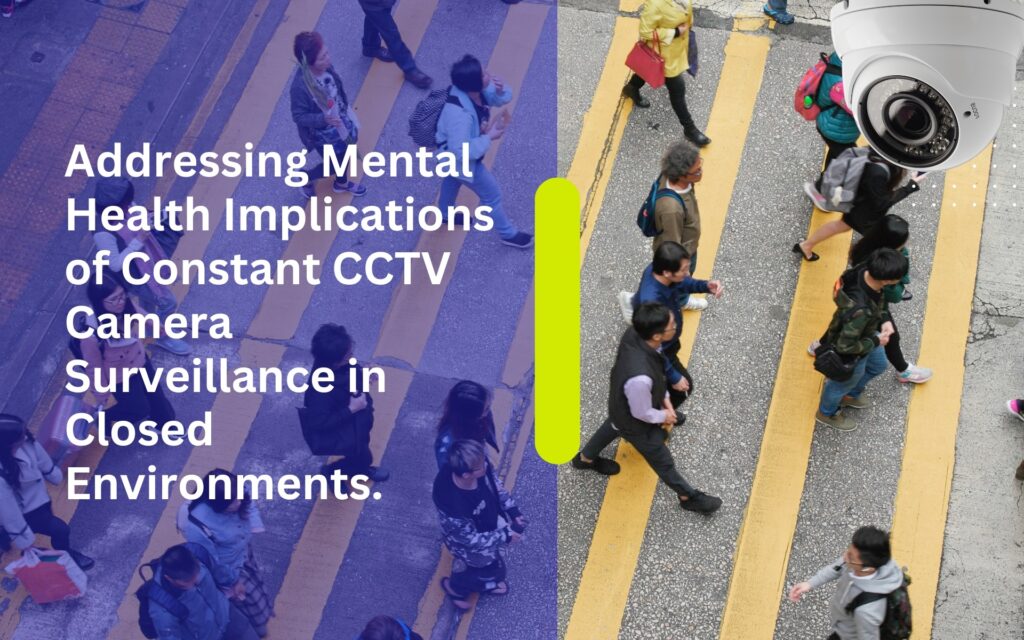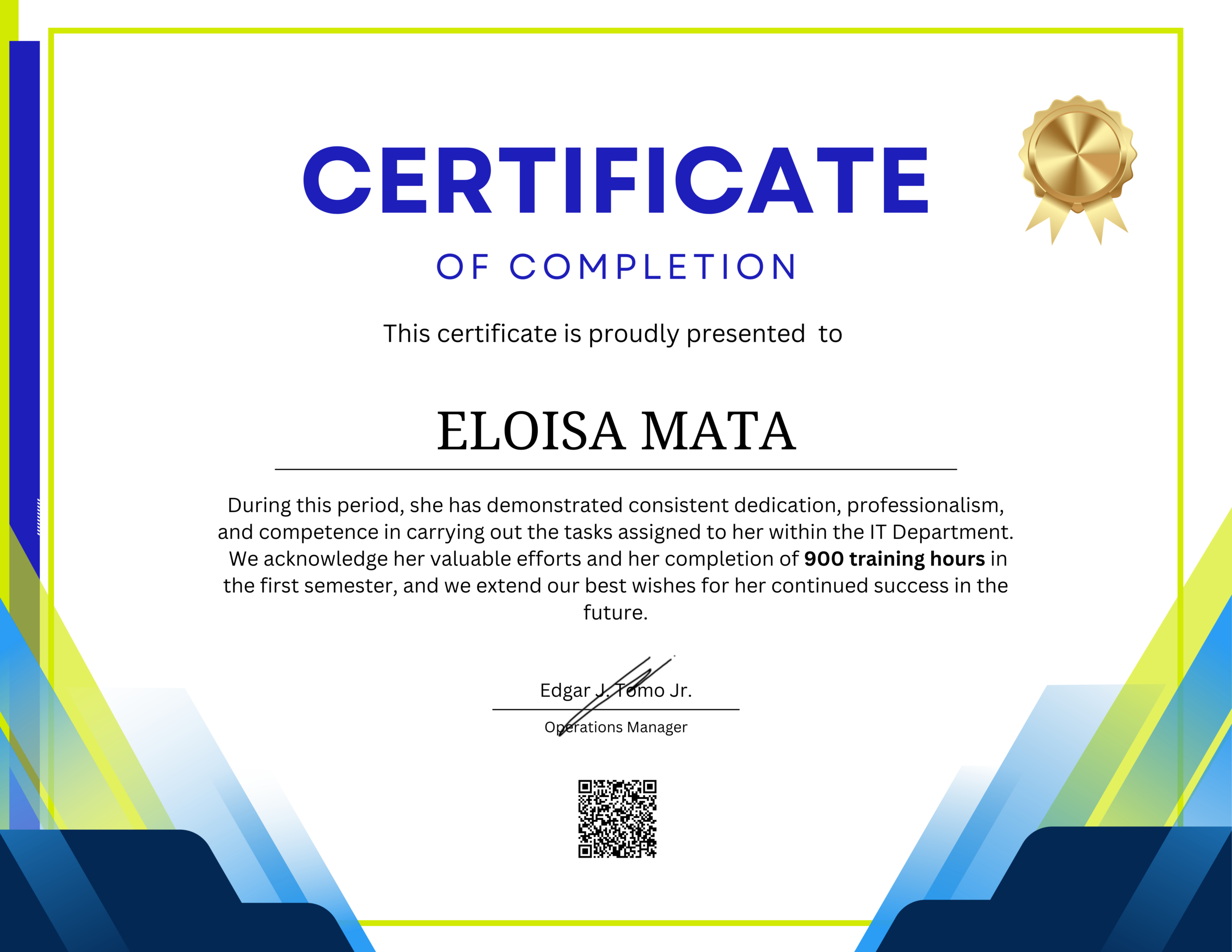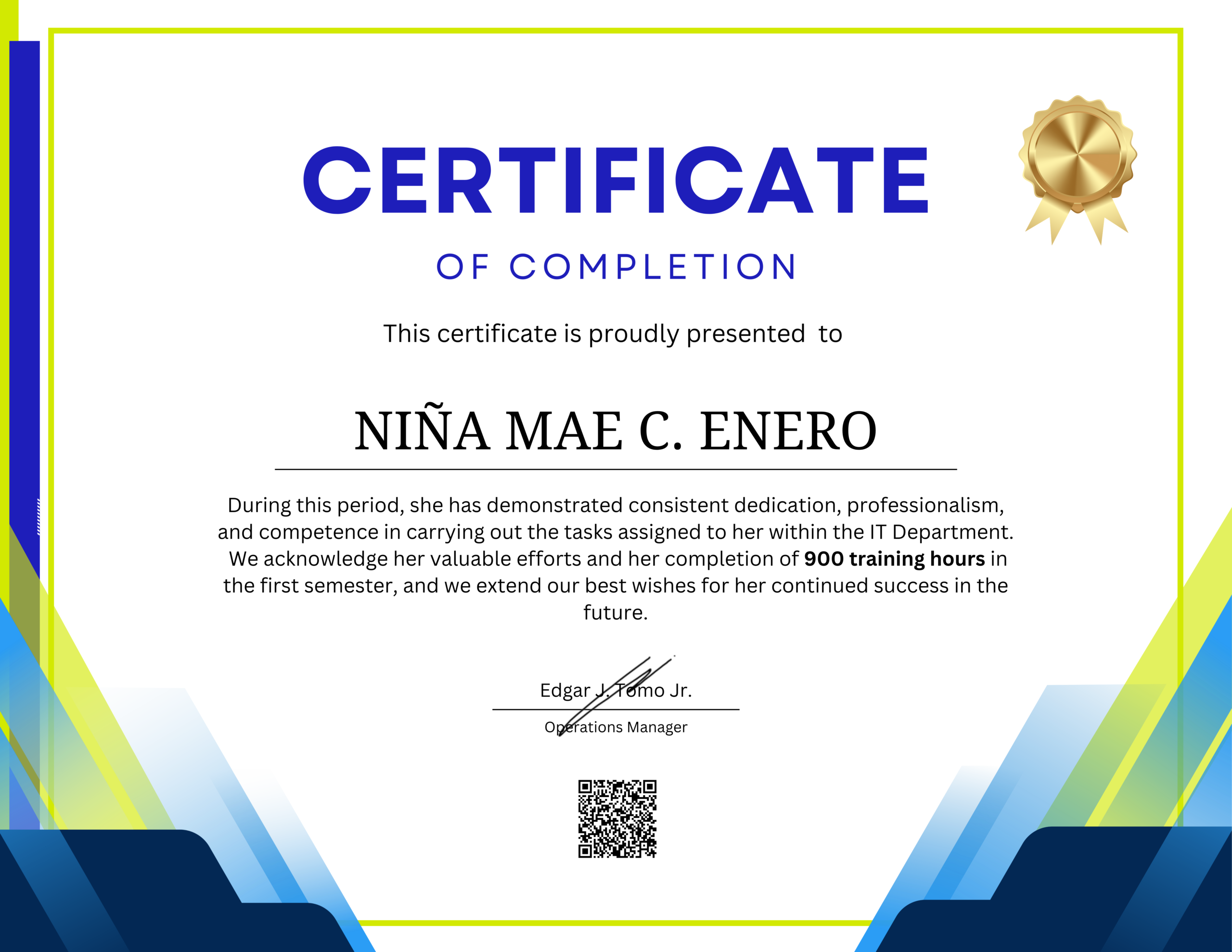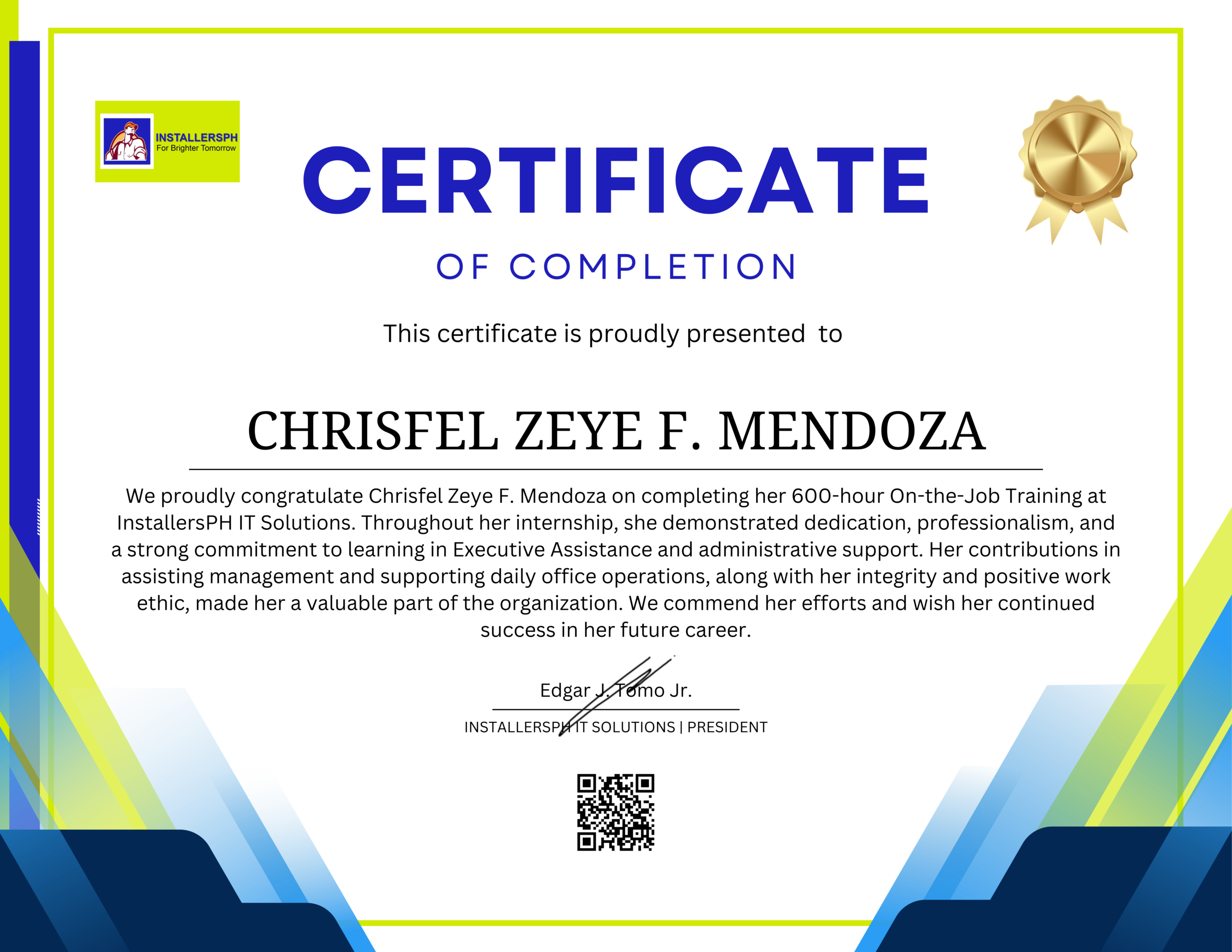The On-the-Job Training Experience of Niña Mae C. Enero Acknowledging Dedication in IT On-the-Job Training. During her on-the-job training period, she demonstrated consistent dedication and a strong sense of responsibility in fulfilling …
Addressing Mental Health Implications of Constant CCTV Camera Surveillance in Closed Environments.

Introduction
In today’s digitally driven world, closed-circuit television (CCTV) cameras have become an integral part of our daily lives, omnipresent in public spaces, workplaces, and even private residences. While these surveillance systems are primarily intended to enhance security and deter criminal activities, their pervasive presence raises complex questions about privacy, autonomy, and the psychological well-being of individuals subjected to constant monitoring. In this comprehensive exploration, we delve into the multifaceted impact of continuous CCTV surveillance on mental health within closed environments. By examining the psychological effects, ethical considerations, and strategies for mitigating potential harm, we aim to shed light on this critical intersection of technology and human well-being.
Understanding the Psychological Effects of CCTV Surveillance
1. Perceived Invasion of Privacy
The omnipresence of CCTV cameras instills a pervasive sense of being constantly watched, leading individuals to feel as though their privacy is under constant threat. This perceived invasion of privacy can evoke feelings of vulnerability, anxiety, and distress, particularly in environments where individuals expect a degree of autonomy and discretion.
2. Sense of Hyper-Vigilance
The awareness of being under constant surveillance engenders a state of hyper-vigilance, wherein individuals feel compelled to monitor their behavior meticulously. This heightened alertness, while initially adaptive in response to perceived threats, can become exhausting and mentally taxing over time, contributing to chronic stress and fatigue.
3. Loss of Autonomy and Control
Continuous CCTV surveillance erodes individuals’ sense of autonomy and control over their environment, as they navigate the implicit scrutiny of their actions and behaviors. The pervasive presence of surveillance cameras can create a panoptic effect, wherein individuals feel compelled to conform to perceived norms and expectations, further diminishing their sense of agency and self-determination.
4. Impact on Trust and Social Dynamics
In environments characterized by constant surveillance, trust among individuals may erode as suspicions regarding surveillance motives and potential breaches of privacy surface. This erosion of trust can undermine interpersonal relationships, inhibit collaboration and communication, and foster a climate of suspicion and paranoia, ultimately contributing to feelings of isolation and alienation.
5. Psychological Distress and Mental Health Outcomes
The cumulative impact of continuous CCTV surveillance on mental health can manifest in various forms of psychological distress, including heightened anxiety, depression, post-traumatic stress disorder (PTSD), and diminished overall well-being. Individuals subjected to constant monitoring may experience intrusive thoughts, hypervigilance, and a sense of powerlessness, all of which can significantly impact their quality of life and functioning.
Addressing Mental Health Concerns in Closed Environments
Promoting Transparency and Informed Consent: Organizations and authorities implementing CCTV surveillance should prioritize transparency and seek explicit consent from individuals subjected to monitoring. Clear communication regarding the purpose, scope, and duration of surveillance, as well as the measures in place to protect privacy rights, can empower individuals to make informed decisions about their participation and engage in dialogue about their concerns.
1. Implementing Privacy Safeguards
Robust privacy safeguards are essential to mitigate the risk of misuse or unauthorized access to surveillance footage and protect individuals’ privacy rights. This may include implementing encryption protocols, access controls, and data anonymization practices to ensure that surveillance data is used responsibly and ethically.
2. Balancing Security Needs with Mental Well-being
While security considerations are paramount, it is crucial to strike a balance between security imperatives and mental well-being considerations. This entails conducting comprehensive risk assessments to determine the necessity and proportionality of surveillance measures, exploring less intrusive alternatives where feasible, and integrating mental health considerations into surveillance policies and practices.
3. Empowering Individuals with Coping Strategies
Providing individuals with resources and support to cope with the psychological stressors associated with CCTV surveillance is imperative. This may involve offering mental health counseling services, resilience-building workshops, and mindfulness-based interventions to help individuals develop coping strategies, enhance self-efficacy, and cultivate emotional resilience in the face of surveillance-related stressors.
4. Advocating for Ethical Surveillance Practices
Engaging in dialogue and advocacy efforts aimed at promoting ethical surveillance practices can help raise awareness about the potential mental health implications of CCTV surveillance and foster a collective commitment to safeguarding individual rights and well-being. This may involve collaborating with policymakers, technology developers, and civil society organizations to establish guidelines, standards, and accountability mechanisms that uphold principles of dignity, autonomy, and mental health resilience.
Conclusion
As CCTV surveillance continues to proliferate in closed environments, it is incumbent upon stakeholders to recognize and address the complex interplay between surveillance technologies and mental health. By prioritizing transparency, privacy protection, and individual empowerment, we can mitigate the adverse psychological effects of constant surveillance and foster environments that prioritize both security and psychological well-being. Through collaborative efforts and ethical stewardship, we can navigate the evolving landscape of surveillance technology while upholding fundamental principles of dignity, autonomy, and mental health resilience. By acknowledging the nuanced impact of continuous CCTV surveillance on mental health and implementing proactive measures to address these concerns, we can strive towards a future where technology enhances safety without compromising individual well-being.
Related Articles
The On-the-Job Training Experience of Niña Mae C. Enero Acknowledging Dedication in IT On-the-Job Training. During her on-the-job training period, she demonstrated consistent dedication and a strong sense of responsibility in fulfilling …
The On-the-Job Training Experience of Chrisfel Zeye F. Mendoza Introduction. On-the-Job Training (OJT) plays a vital role in preparing students for the professional world by allowing them to apply academic knowledge in …



